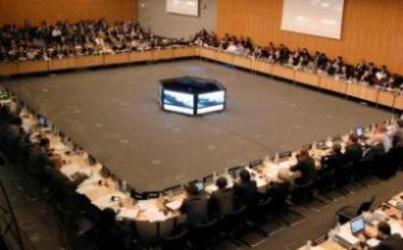Anti-money laundering body removes Sudan from its blacklist
October 23, 2015 (KHARTOUM) – An international agency on combating money laundering, terrorist financing, the Financial Action Task Force (FATF), on Friday removed Sudan from its blacklist, saying the east-African nation is no longer a threat to the integrity of the international financial system.

“Both countries will no longer be subject to the FATF’s monitoring under its on-going global AML/CFT compliance process. Both countries will work with their respective FATF-Style Regional Bodies as they continue to further strengthen their AML/CFT regime,” added the inter-governmental body which includes the United States among its membership.
Following the announcement, the central bank spokesperson Hazim Abdel Gader said “This decision ease money transfers to and from Sudan without restrictions”.
Abdel Gader further said the decision was the result of great efforts made by the Central Bank of Sudan and the other competent authorities during the past years.
Sudan since February 2010 committed itself to work with FATF and its regional branch to address its strategic deficiencies.
In February 2013, the anti-money laundering body declined to remove Sudan from the blacklist, pointing that Khartoum was in need to implement adequate procedures for identifying and freezing terrorist assets; ensuring a fully operational and effectively functioning Financial Intelligence Unit; and ensuring an effective supervisory programme for AML/CFT compliance.
But, in June of this year, the FATF said Sudan has made significant progress to improve its AML/CFT regime. The report further announced a visit to Sudan to verify that the process of implementing the required reforms and actions was underway to address deficiencies previously identified.
Sudan which is under U.S. economic sanctions has a limited access to international financial markets and institutions. Also, most Arab and European banks ceased processing financial transactions from Sudan or with Sudanese banks after the Treasury Department’s fine on BNP Paribas for sanctions violations in July 2014.
The sanctions contribute to promote the informal hawala money remittance and value transfer systems. Also; it makes the country vulnerable to trade-based money laundering.
Earlier this month, Khartoum said they are agreed with the American administration to elaborate a road map to normalize ties and to end economic and trade sanctions.
(ST)
